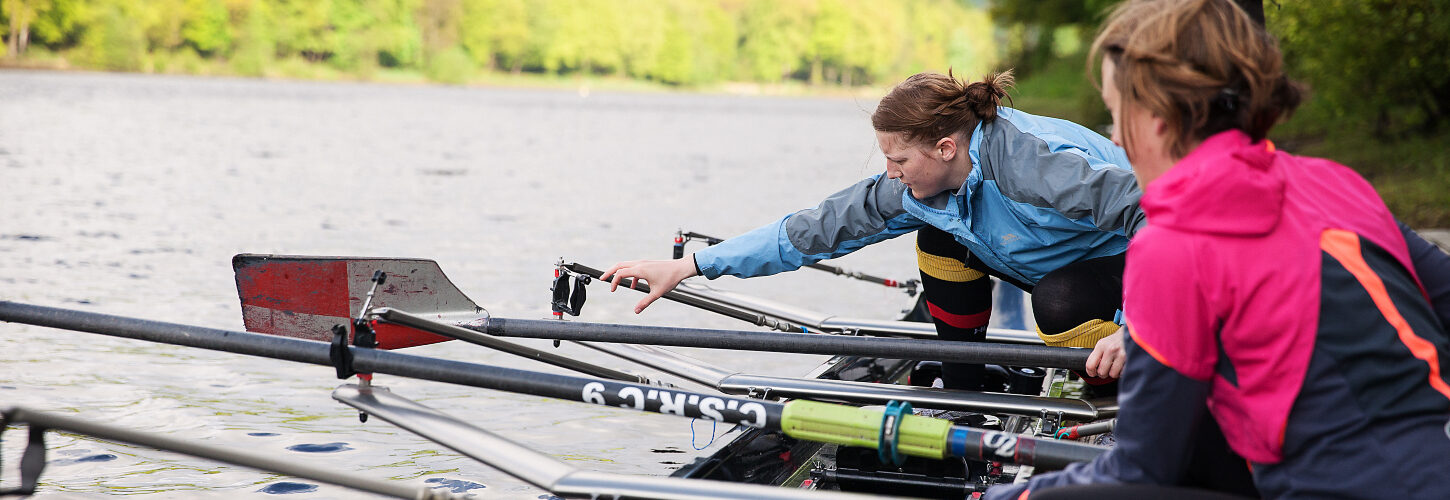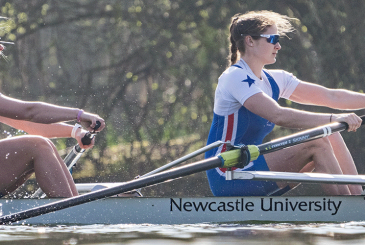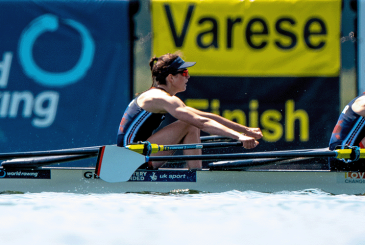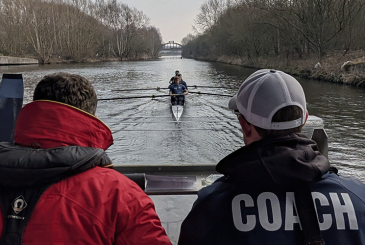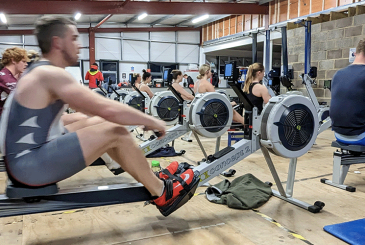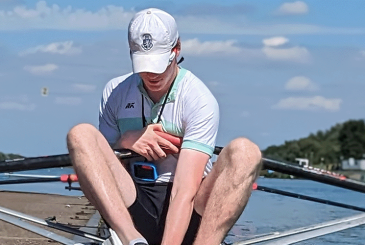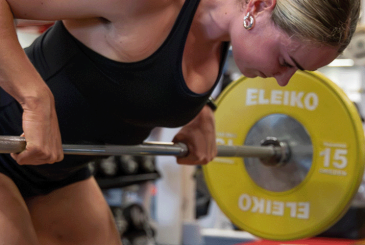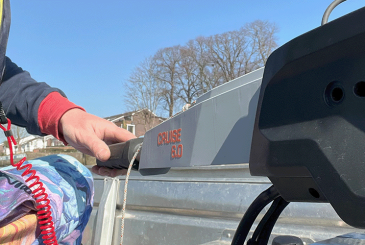Our volunteer coaches help to inspire people to engage with our sport – Joanne Harris explores how we can better appreciate their efforts
Volunteers, and volunteer coaches, in particular, are the lifeblood of rowing. They can be found at clubs up and down the country, giving up hours of free time every week in all weathers to develop and encourage their crews.
The reward for that time is difficult to quantify, but can, say coaches, be immense.
“The value, I suppose, is just seeing the athletes improve and being there to support them and, hopefully, gradually seeing them get better over time,” says Chris Turner, women’s coach at City of Bristol Rowing Club.
“I really enjoy seeing people do well,” agrees Tessa Millar, who coaches the men’s squad at Imperial College Boat Club in London. “Watching your protégés win medals and develop and compete to a high level to me is great.”
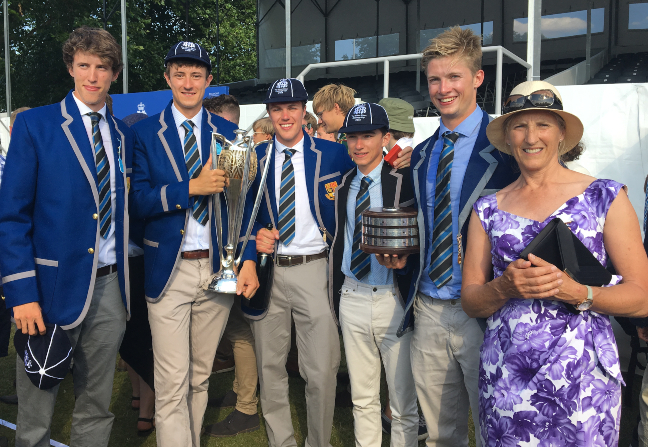
Millar adds that being part of a club is also important to her.
“The Imperial boys are incredibly clever and they’re great fun to be with because they’re pushing boundaries. They really are a joy to coach because they’re very receptive,” she says.
And yet many clubs struggle to adequately recognise the commitment their volunteers, including the coaching team, give. Turner is also City of Bristol chairman and admits that finding a better way to show the club’s appreciation of its coaches is on his list of things to do.
“When money does come in, it instantly goes to boats or blades,” he says. “We’ve talked about getting a supply of kit for coaches, but blades always come above that kind of thing.”
Bristol, like most clubs, does recognise its coaches at its annual awards, and Turner says it is also exploring long-service awards in some form for those volunteers who commit for a period of time. The club also nominated Turner as Volunteer of the Year at the British Rowing Awards and he was shortlisted, alongside Millar and several other volunteers.
Millar says she has appreciated the small gifts, such as a bunch of flowers and bottle of wine, routinely presented to her at Imperial’s annual gatherings. The size of the gift is not important – but the recognition is key.
Imperial is also able to support its coaches through coaching courses and cover their expenses for camps and regattas. Millar says mentoring from experienced coaches is another excellent way to develop newer members of the team.
Ellie Darlington, club captain at Cantabrigian Rowing Club in Cambridge, explains that the club has a number of ways of showing its appreciation for its volunteer coaches. Like Bristol, Cantabrigian hands out a coaching award at its annual dinner.
“This doesn’t necessarily have to be for the ‘best coach’, but it’s a way for us to recognise the contributions made by the coaches. It’s been won by different people most years, which is great as it shows that they’re all really valued,” Darlington says, noting that nominations always come in for every member of the team.
However, Cantabrigian’s efforts to support its coaches go far beyond awards.
The club has a mentoring programme, encourages feedback from squads for their coaches, runs regular coaches’ workshops (which went virtual during lockdown), and has a compulsory volunteering scheme which sees squad athletes give time to support junior and learn to row coaches.
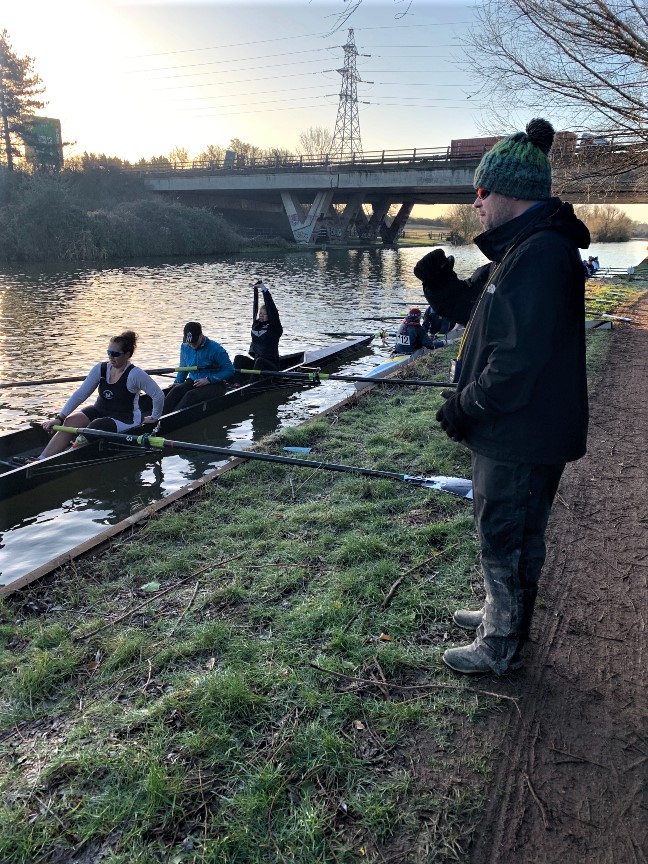
Volunteer coaches are also supported financially if they are undertaking courses – and are not charged club membership.
“Our general ethos is that 99% of people rowing at the club will have learned to row, and continue to row, thanks to other people giving up their time to coach us, so the least we can do is give back so that other people have the same opportunities as us,” Darlington says.
The club also has a thriving team environment for its coaches. “They work together really nicely, there’s a good relationship between all of them and they borrow ideas from each other,” Darlington says.
Communication is key to a successful coaching team, Millar says, especially when it includes both professional and volunteer coaches.
“I’m not in the club during the day, when the paid coaches will probably have a discussion and make a decision about something,” Millar points out.
“Communication and being aware that some of the volunteer coaches might have other jobs is really important.”
Both Millar and Turner say making sure athletes are supported and developed is crucial in their coaching roles, and they value recognition from athletes particularly highly – even above recognition or appreciation from their clubs.
Turner reveals that some of his rowers have, in the past, tried to give him pots they have won, which he says he does not feel comfortable taking. Some events now give coaches as well as crews winners’ medals, which Turner thinks could be a good extra encouragement.
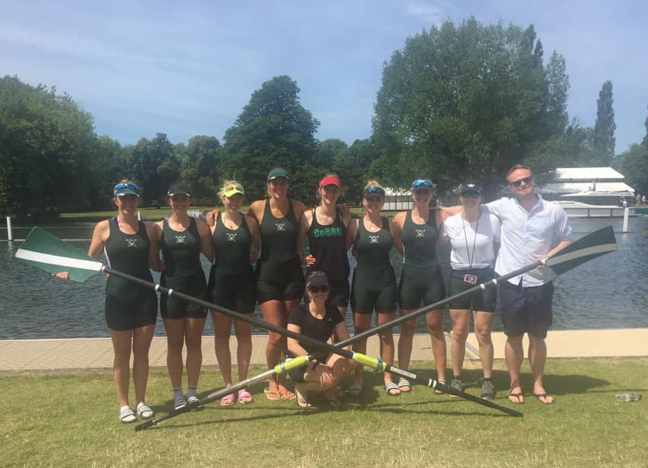
“Speaking to people coming towards the end of their rowing careers – even people who have done multiple Henley campaigns – they feel they can’t coach or that they don’t know enough.
“If coaches are shown to be appreciated, people are more likely to go into it,” he concludes.
Ways to recognise and support your volunteer coaches
- Financial contribution towards coaching courses
- Help with expenses for regattas or camps
- Regular coaches’ meetings or workshops
- Internal mentoring schemes
- Feedback from other coaches and athletes
- Annual awards or long-service awards
- Thank-you gifts from the club
- Gratitude expressed in newsletters and other club communications.
Main photo: John Anderson


